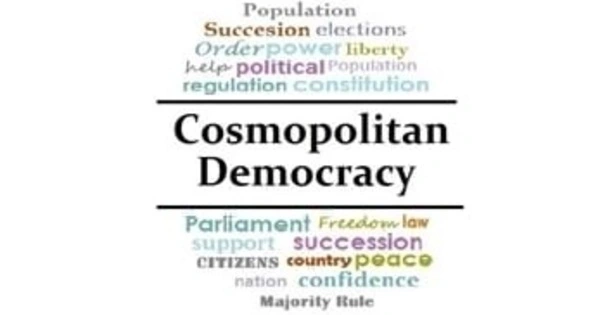Cosmopolitan Democracy is a political philosophy that advocates for a global governance system in which decisions are made on a transnational scale and with the participation of individuals from around the world. This idea is based on the principles of cosmopolitanism, which asserts that all human beings belong to a single community and should have equal opportunities for political participation, regardless of their nationality.
Cosmopolitan democracy seeks to address global problems such as climate change, human rights abuses, and economic inequality through a system of democratic institutions that operates at the international level. It is a political theory that investigates the transnational and global application of democratic norms and values. It contends that global governance of, by, and for the people is both possible and necessary.
Immanuel Kant, David Held, Daniele Archibugi, Richard Falk, and Mary Kaldor are among the writers who advocate for cosmopolitan democracy. Decisions are made by those who are affected in the cosmopolitan democracy model, which avoids a single hierarchical form of authority.
Democratic practice should be reinvented to take into account the will of stakeholders, depending on the nature of the issues at stake. This can be accomplished either directly or through elected representatives. Unlike the models of global governance supported by classic World Federalism thinkers such as Albert Einstein, the model advocated by cosmopolitan democrats is confederal and decentralized—global governance without world government.
The cosmopolitan democratic ideal emphasizes the need for greater global cooperation and interdependence, and seeks to address global challenges such as poverty, inequality, climate change, and conflict through democratic means. A global citizen’s assembly was planned for 2021 to coincide with COP26 in Glasgow in October-November 2021. This is the first organization that can claim to democratically represent the wishes of the entire world’s population.
Origin and development
It is a political philosophy that advocates for a global system of governance in which all human beings have equal political rights, regardless of their nationality or citizenship status. It envisions a world where people have a say in the decisions that affect their lives, and where the principles of democratic governance and human rights are respected and upheld at both the national and international level.
The victory of Western liberal states in the Cold War inspired hope that international relations could be guided by democratic and rule-of-law ideals. In the early 1990s, a group of thinkers created the political project of cosmopolitan democracy with the goal of providing intellectual arguments in favor of democratic expansion, both within states and globally. While some significant progress has been made in terms of democratization within states, much less progress has been made in terms of democratizing the global system.
Realist, Marxist, communitarian, and multicultural perspectives have all criticized cosmopolitan democracy. Democratic theorist Robert Dahl has expressed doubts about the possibility of significantly expanding democracy in international organizations, believing that democracy diminishes with size. Opponents of Dahl’s approach point out that larger countries are not always less democratic. There is no correlation, for example, between voter turnout and population size; in fact, it is lowest in countries with fewer than 100,000 citizens.
















